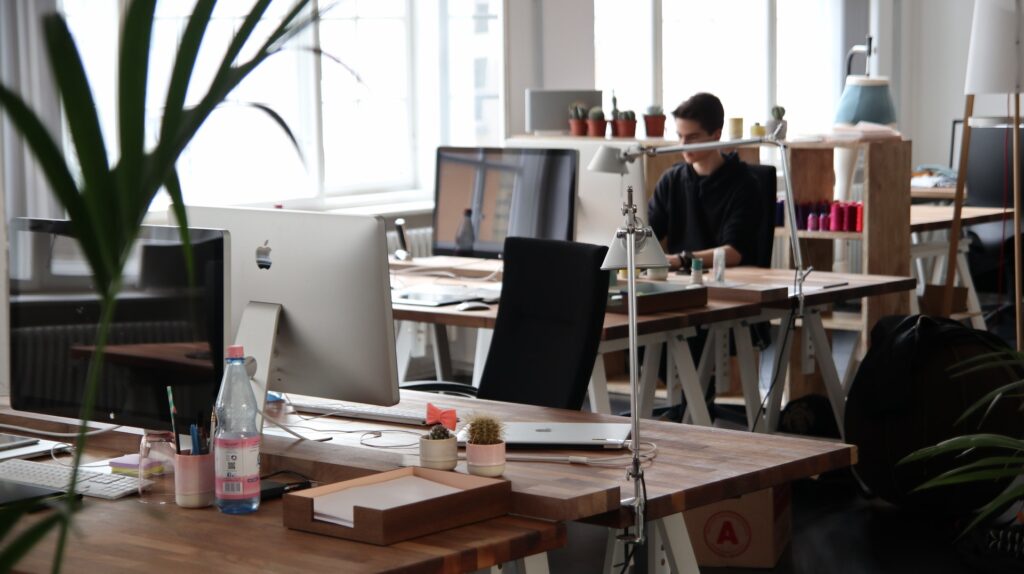Providing a safe and secure work environment is a necessity for a passionate and creative staff. As the COVID-19 pandemic continues with no definitive end in sight, more and more companies are reconsidering their health and safety protocols.
Whether the majority of your employees are currently in the office or working from home, you can treat the pandemic—and the new year—as an opportunity to improve your policies. Even if the pandemic subsides sooner than expected, you never know what could happen down the line, and it’s better to have a plan in place sooner than later.
For a safer, healthier, and happier workplace, consider the following tips for the new year:
Communicate Coronavirus Protocols Clearly
Communication is vital when it comes to creating a safe work environment. That means you can’t just send vague mass emails to your staff or hang a piece of paper on the wall to inform them of changes.
Instead, you should hold company-wide or department virtual meetings where you can communicate the new guidelines in detail, explaining how they’ll be enforced and why they should take them seriously. Individual employees will likely have questions that pertain to their unique circumstances, so make sure management has an open-door policy for discussing these matters.
Reassess Your Time-off Policies
Considering the nature of COVID-19, one or more of your employees may catch the virus or come in close contact with an infected individual. To prevent it from spreading to the remainder of your staff and yourself, designate paid time off for employees who might have caught the virus and are waiting for their test result if at all possible.
Also, because the pandemic has forced many schools to switch to remote learning, many parents now have to supervise their children all day, every day. To accommodate the needs of your employees, consider adopting more flexible policies for daily hours. During trying times, a little leniency can go a long way to reduce employee stress and promote productivity.
Review Emergency Procedures
Given the current situation, it can be easy to forget that there are other emergencies your staff needs to prepare for. Depending on your location, your local government may have different procedures for different accidents and incidents, such as fires, earthquakes, and tornadoes. Consider holding regular, professionally-taught workshops for every emergency situation the Occupational Safety and Health Administration recognizes.
Schedule Regular Health and Safety Training
To prevent workplace injuries common in your industry, you should hold regular employee health and safety training sessions. This may sound unnecessary if most of your employees work from home, but working remote doesn’t remove all potential hazards or prevent unhealthy habits. For example, work-from-home employees can still develop repetitive stress injuries if they don’t stretch often and maintain good posture.
Furthermore, it’s up to you as the employer to make sure all employees know how to file an at work injury claim to your workers’ comp insurance provider. That way, they’ll receive the compensation due for their injury-related expenses as soon as possible.
Build a Return-to-work Task Force
When an employee has to take leave from work due to an injury or illness, it often affects their mindset and work performance when they return. To ease this transition, you can create a return-to-work program that gradually reintroduces the employee to their previous work or helps them settle into a different role.
Establish an Employee Wellness Program
An employee wellness program system or policy helps ensure your staff members have the resources to improve their physical and mental health. While it might seem like an unnecessary expense, a wellness program has countless benefits in the long run, such as increased productivity, lower healthcare costs, fewer sick days off, and tax cuts in some areas. Not to mention, taking care of your employee’s mental health can also increase their creativity, making them better problem solvers and more innovative than before, which, in turn, translates into a growing and prospering business.
Stay Up-to-date and Listen to the Experts
The recommended way to handle natural disasters, workspace injuries, and global pandemics continuously changes as experts learn more about the situation or new medical or technological solutions emerge. As an employer, it’s your job to keep up with these developments so you can create the best possible working environment for your valued employees.



